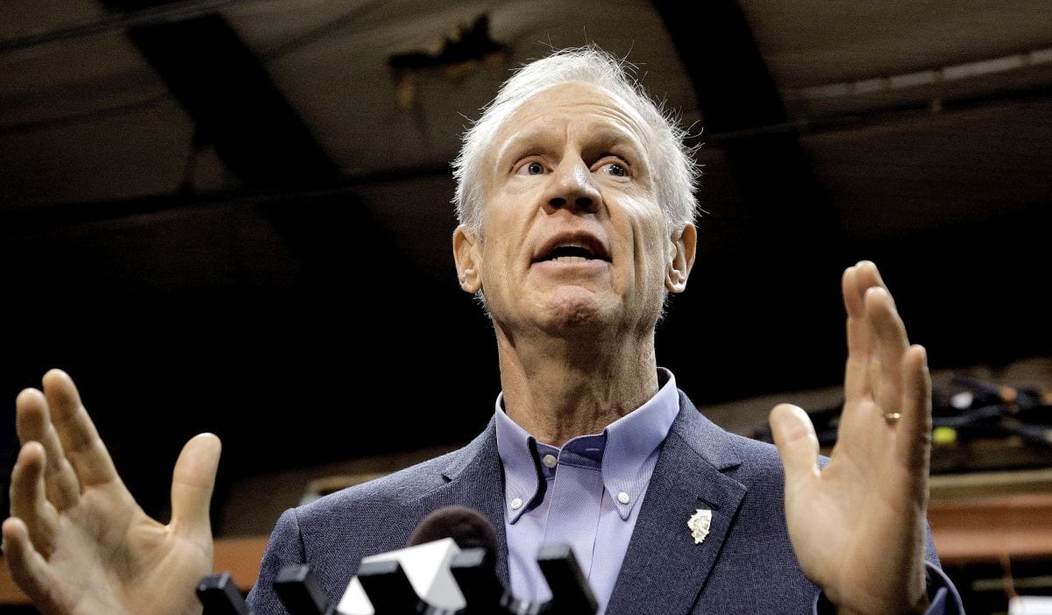With the state of Illinois teetering on the precipice of a financial Armageddon, the House passed the first budget plan in three years, including a revenue measure that would up the state income tax from 3.75 percent to 4.9 percent. The corporate tax rate would jump from 5.25 percent to 7 percent. Democrats say the tax increases will generate $6 billion in new revenue — an optimistic projection considering the fact that Illinois taxes are already among the highest in the nation and the state is losing residents and businesses at an alarming rate.
Meanwhile, almost before the ink was dry on the bill, Governor Bruce Rauner promised to veto the budget and tax increase if the state Senate passed it. This puts Illinois directly in the crosshairs of bond rating agencies that have indicated they will drop Illinois bonds to junk status if no progress is made in solving the state’s financial woes.
If the state’s bonds are downgraded to junk, the damage to state finances would be catastrophic. It would mean the state would pay sky-high interest rates to borrow money and the extra interest would have to come directly out of the budget. That means even less for schools, seniors, and social services.
The day of reckoning for Illinois has arrived and lawmakers are sleeping in.
Soon after the votes, Rauner vowed to veto “Mike Madigan’s permanent 32 percent tax hike,” dubbing it “more of the same.” The Rauner-led Illinois Republican Party, too, quickly labeled the speaker “#JunkMadigan” in a tweet.
But Madigan heralded their passage as the “right decision,” while vowing that there’s more work to do.
The revenue measure passed 72-45, with 15 Republicans voting to approve it — a reflection of the mounting frustration and pressure of a stalemate that has decimated the state.
The spending plan garnered more votes — with 81 voting to approve it. Both measures now head to the Senate, where they’ll need 36 votes.
An amendment filed to the spending plan included some sticky changes, reflective of Democratic leaders’ desire to see a school-funding formula bill signed. One change would block money for schools unless the governor signs an “evidence-based model” — effectively holding districts harmless for their current funding and building off that to reach adequacy targets.
That school-funding formula bill is a huge gift to the Chicago public schools and other Chicago-area school districts. In essence, it gives the CPS a pass for their extraordinary mismanagement in the past and rewards them with even more money.
Rauner’s veto threat is no surprise. He has said he’ll only support an income tax hike if it’s limited to four years and paired with a four-year property tax freeze. He’s also still seeking changes in workers’ compensation and pensions. And his veto message pins the hike entirely on the speaker — whom he’s spent millions against in legislative campaigns and ads.
“Illinois families don’t deserve to have more of the hard-earned money taken from them when the Legislature has done little to restore confidence in government or grow jobs,” Rauner said in a statement.
The tax bill passed with some essential Republican support — it needed 71 votes. But Illinois House Republican Leader Jim Durkin questioned how it will address the state’s $14 billion bill backlog. Durkin is seeking to get Rauner the “balanced budget package,” he wants, which includes spending reductions and “meaningful reforms.”
“I am disappointed that we’re taking this up at this moment when there has been significant, significant progress to address the priorities of the governor and also the priorities of this caucus,” Durkin said.
There are, of course, political ramifications to supporting a tax hike, on both sides of the aisle. Some House Democrats were expected to vote no to try to shield themselves from Illinois Republican Party attacks in next year’s election.
But some House Republicans — knowing they’d too be targeted for supporting it — said there’s no other choice.
“For me right here today, this is the sword that I’m willing to die on,” state Rep. Michael Unes, R-East Peoria said. “And if it costs me my seat, so be it.”
It’s a political dilemma for Republicans. But it could very well sound the death knell for the Rauner re-election campaign. Not one single major reform that he ran on four years ago has come to pass. His pension reform plan came a cropper in the courts. His union-reform measures went nowhere. He failed to get state finances on sound footing and actually may preside over the worst fiscal disaster for a state in U.S. history.
What isn’t even mentioned is the nearly $15 billion in unpaid bills that the state owes to contractors, small businesses, and others who did work for the state in good faith only to have the politicians stiff them.
By August, if there’s still no budget, the state will quite simply run out of cash. Before that happens, there may be a tar and feathering of several state politicians who feel it more important to score political points than conduct the people’s business.










Join the conversation as a VIP Member